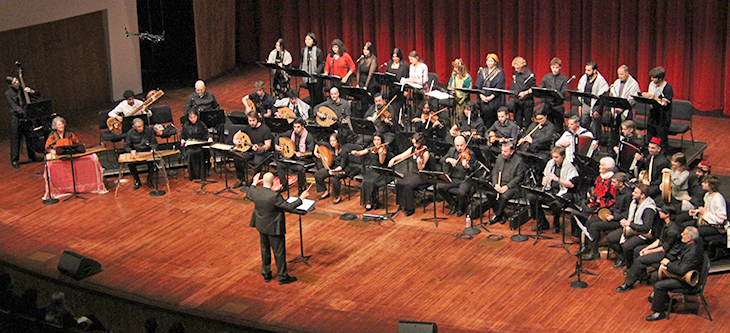
The Arab Music Ensemble
The Arab Music Ensemble performs the art and popular music of a wide range of Arabic-speaking societies while particularly focusing on the areas around the Eastern Mediterranean.
Arab art music has intersected substantially with folk and religious musical traditions and has benefited deeply from the contributions of interconnected social groups including men and women of diverse ethnic, religious, and philosophical backgrounds. It also has connected historically to neighboring cultures of the larger region including those of Iranian (Persian) and Turkish (Ottoman) music. The repertoire of the Arab Music Ensemble comprises pieces ranging from the Ottoman era up to the present. The music is rooted in the traditional systems of melodic and metric modes (maqam and iqa` systems), and takes the form of instrumental improvisation (taqsim), vocal improvisation (layali and mawwal), and pre-composed works in many formal genres (e.g., dulab, sama`i and muwashshah). Students sing and perform instrumentally in a chamber music ensemble (takht) as well as in a larger orchestra (firqa). The traditional instruments employed include the oud (lute), kamanja (violin), qanun (zither), nay (reed flute), riqq or daff (tambourine), darabukka or tabla (goblet drum), and others. Consistent with developments in composition and performance practice over the past century, the ensemble also employs instruments adapted from Euro-American traditions including the contrabass, violoncello, accordion, electric guitar, and drum set as well as Latin percussion, brass instruments, and others. Participation in the ensemble is open to all Cal Poly students and community members. Previous experience is not required. Performances include a formal concert at the end of each quarter and additional concerts in different configurations for other occasions.
